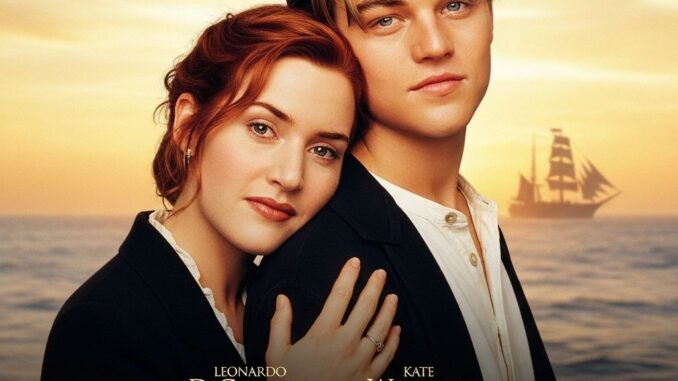
The Unsinkable Debate: Kate Winslet and the Titanic Door’s Enduring Legacy
For over a quarter of a century, the final, heart-wrenching moments of James Cameron’s Titanic have been etched into the collective consciousness, not just for their tragic beauty, but for a singular, seemingly simple, and endlessly debated point of contention: the wooden door. As Rose Dewitt Bukater floated precariously on a splintered fragment of the luxurious liner, while Jack Dawson, her lover, succumbed to the icy grip of the North Atlantic, a question has haunted generations of viewers, birthed a thousand memes, and fueled countless barstool debates: “Couldn’t Jack have fit on that door too?” Now, in a recent interview, Kate Winslet, the actress who embodied Rose with such indelible force, has finally, gracefully, and with a touch of exasperated humor, opened up about the infamous scene, offering not just a definitive answer but a poignant illumination of cinema’s enduring power and the strange burden of iconic roles.
The door, or rather, the “buoyant debris,” as Cameron often refers to it, transcended its humble origin to become a cultural lodestar. It wasn’t merely a prop; it was the physical embodiment of the lovers’ fate, and by extension, a symbol of perceived injustice. Viewers, perhaps desperate for a different ending, saw a missed opportunity, a cruel twist of narrative knife. Internet forums buzzed with amateur physicists conducting buoyancy tests; Mythbusters famously (and controversially) proved Jack could have fit, igniting further passionate arguments. The scene became a ghost in the machine of the film’s legacy, a lingering question mark over an otherwise perfect, albeit tragic, love story. For Kate Winslet, the woman who lay on that very piece of timber, the question has been an albatross, albeit a humorous one, around her neck for decades. Every interview, every retrospective, every casual fan encounter seemed to gravitate back to the plank.
What Winslet offers in her recent comments is not a recantation, but a much-needed dose of narrative truth, colored by the actor’s unique proximity to the material. She likely explained what Cameron himself has reiterated: it was never about literal space, but about buoyancy, about survival, and, most crucially, about story. Jack had to die. His sacrifice was the very crucible of Rose’s survival, her promise to him, and the emotional anchor of the entire film. If Jack had lived, the film’s powerful, cathartic ending – Rose living a full life, her heart a testament to their love – would have crumbled. Winslet, as Rose, would have been acutely aware of the brutal, instinctual decisions made in the face of imminent death. It wasn’t selfishness; it was the desperate, illogical, and often singular focus on survival that defines such moments. Her voice, decades later, acts like a Rosetta Stone, translating the emotional truth of the scene into a logical explanation, offering closure not just for the fans, but perhaps for herself as well.
Winslet’s gentle but firm clarification goes beyond merely settling a cinematic debate; it speaks volumes about the peculiar relationship between actors, their iconic characters, and the audience. When a film resonates as deeply as Titanic did, characters cease to be mere figments of imagination; they become extensions of the collective unconscious, owned in part by everyone who loves them. Actors, then, become not just interpreters, but custodians, frequently asked to account for the choices of their fictional counterparts. Winslet’s continued grace in addressing this enduring “mystery” for so long, and her current willingness to offer a definitive, character-centric perspective, illustrates her enduring professionalism and deep understanding of her craft. She isn’t just defending a scene; she’s defending the integrity of a story, and implicitly, the emotional intelligence of a young woman caught in an impossible situation.
In the end, Kate Winslet’s recent insights into the Titanic door scene serve as a fascinating micro-study in pop culture longevity. Her words don’t diminish the debate so much as they reframe it, transforming a source of frustration into a testament to the film’s profound impact. The door may forever spark discussion, but Winslet’s candid reflection reminds us that the true power of Titanic lies not in the physics of a wooden plank, but in the heart-wrenching narrative choices, the sacrifices made, and the enduring human spirit that, like Rose, survived against all odds. Her voice, calm and clear after all these years, finally casts a clarifying light on a debate that, much like the legend of the Titanic itself, seems truly unsinkable.
